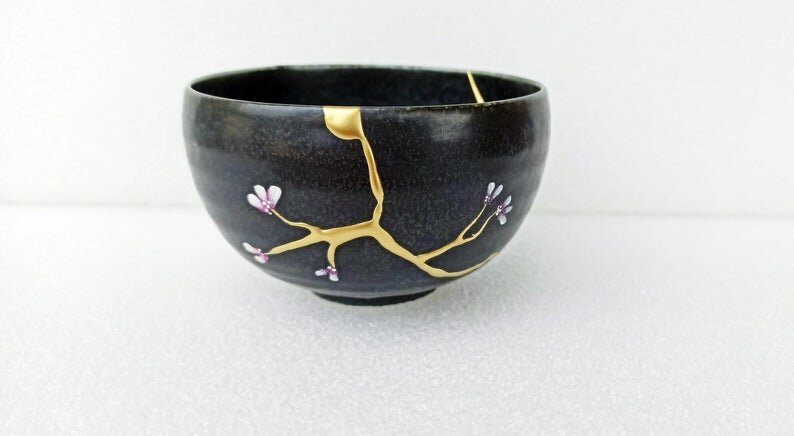I had a bubble burst today.
For years I've been telling people why I love the word "sincere" so much. As the story goes, in medieval Europe, a potter or sculptor would use wax to cover over any flaws in the vessel or sculpture once it was dry. Being a language freak, I was fascinated to learn that "sincere" meant "without wax" -- "sin" ("without" in Spanish) "cera" ("wax"; "cire" in French). Being truly sincere is being "without wax", with no attempt to cover one's flaws. What you see is who I am.
Cool, right?
It turns out this in an etymological myth. "Sincere" actually comes from the Latin "sincerus", meaning "pure, clean, untainted".
Still pretty cool.
THEN I discovered an ancient Japanese art form called kintsugi, where a broken ceramic vessel is put back together using a lacquer mixed with powdered gold so the flaws are actually highlighted.
As the BBC Travel website says:
"In a world that so often prizes youth, perfection and excess, embracing the old and battered may seem strange. But the 15th-Century practice of kintsugi, meaning “to join with gold”, is a reminder to stay optimistic when things fall apart and to celebrate the flaws and missteps of life."
Not only do plenty of my own flaws and missteps come to mind, I can't help also wondering how we can look back on the trials of the last year (and counting) and find things to celebrate...with the powdered gold of gratitude.

